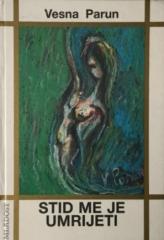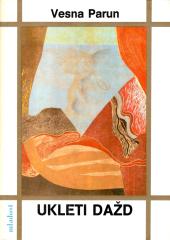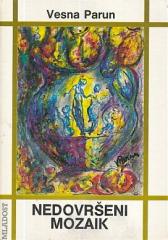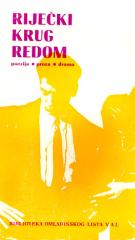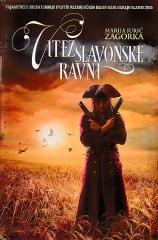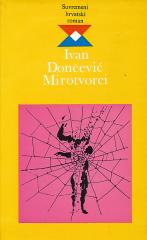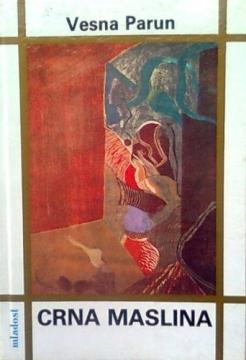
Crna maslina
The small booklet of verses "Black Olive", in its condensed form of the painful experience of a woman and poet, an intimate creator and a public worker, is one of the most valuable books of Croatian poetry in general.
The Black Olive is the third poetry collection published in Zagreb in 1955, after "Dawn and the Winds" (1947) and "Poems" (1948), and is one of the central collections in her oeuvre. It contains 44 poems in which the thematic interest is love that is involved in the trinity with birth and death and establishes a correlation with pantheistically conceived nature ("Virginity", "Rijeka i more", "Jealousy", "Odsutnost").
Using the visualization process of connecting images, in the most successful poems of the collection "Usnuli mladic" and "Ti koja imaš nevinije ruke", a complete fusion of the sensory and the visual is achieved. In both poems there is a tendency towards transcending sensory experience and the world, as well as overcoming the tension between passion and pain, or the opposition of short moments of sleep and oblivion and longer durations of suffering and helplessness, dichotomies that permeate the entire collection.
The motif of the unrecognizable other appears in several poems in specific versions of the impatient thirsty traveler ("He was thirsty"), the night guest who passes by and disappears ("Nocturne"), the unknown on the shore ("Love and the Moon") in the dominant elegiac tone of the poems that vary between ballad and lament. The free verse is characterized by rich metaphors whose harmony is based on syntactic and compositional repetitions and is constructed in a combination of vitalism in the footsteps of Vladimir Nazor and aesthetic poetics, the songfulness of neo-symbolist impulses, and even occasional biblical incantations, in which echoes of W. Whitman and Tin Ujević are felt.
One copy is available
